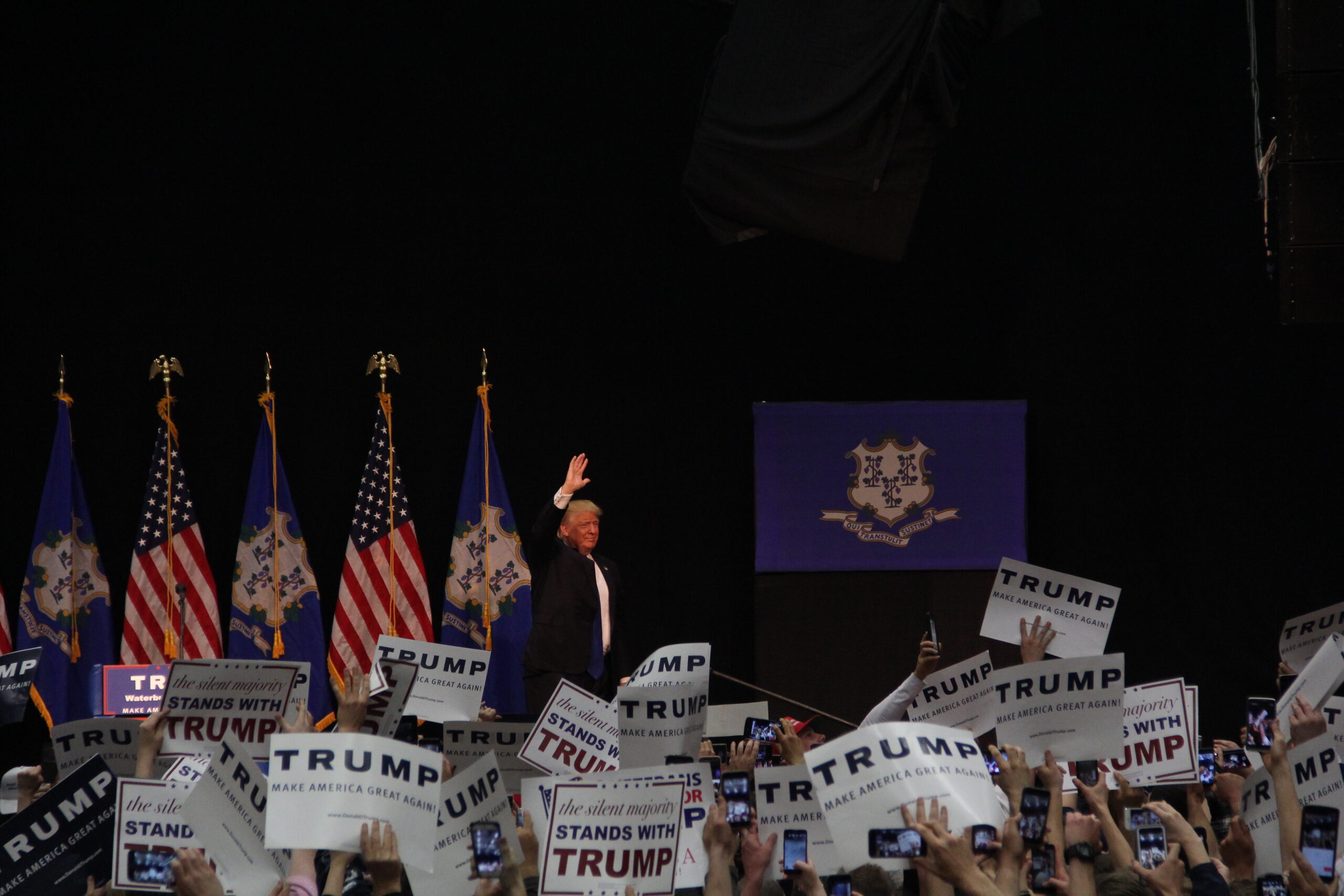Yale’s legal experts weigh in on Trump’s presidential immunity case
Three Yale Law School experts spoke with the News about former president Donald Trump’s Supreme Court case on presidential immunity from prosecution, which is scheduled for oral arguments at the end of April.

Amy Cheng
The United States Supreme Court is set to weigh in on whether former president Donald Trump can be tried on criminal charges surrounding allegations that he conspired to overturn the results of the 2020 election.
The case, Trump v. United States, is scheduled for oral arguments on April 25. The case will address the extent to which a former president retains presidential immunity from criminal prosecution for “official acts,” or actions taken in a presidential capacity while in office. It will also clarify the circumstances under which a former president can be brought to trial in the courts. According to Linda Greenhouse LAW ’78, a former Supreme Court reporter for The New York Times, Trump’s legal team is advocating for a very broad understanding of what constitutes an official act.
“The question before the Court is whether a former president is entitled to immunity from criminal prosecution for official acts,” Greenhouse told the News. “Whether the behavior for which he’s been indicted constitutes official acts in every particular case will be hashed out at trial … but obviously some of the crazier notions are off the table, such as murdering someone and claiming that it was an official act.”
In August 2023, Trump was first indicted on four charges stemming from Special Counsel Jack Smith’s investigation into the events of Jan. 6, 2021. On that day, a mob of Trump supporters stormed the United States Capitol in an attempt to overturn the results of the 2020 presidential election. The riot resulted in numerous deaths and injuries, as well as significant damage to the Capitol building.
Judge Tanya Chutkan of the U.S. District Court for the District of Columbia initially scheduled a trial to address Trump’s efforts to overturn the 2020 presidential election results for March 4, 2024. However, she later withdrew that trial date, stating that she would set a new date once Trump’s claims of immunity were resolved. Chutkan had rejected Trump’s motion to dismiss the charges against himself, asserting that he could be sued for civil proceedings. In December of 2023, Smith petitioned the Supreme Court to review Chutkan’s decision immediately, bypassing the U.S. Court of Appeals for the District of Columbia Circuit. However, the Supreme Court declined Smith’s requests.
Two months later, on Feb. 6, the D.C. Circuit Court of Appeals unanimously upheld Chutkan’s initial ruling, dismissing Trump’s argument that he was immune from prosecution for actions taken during his presidency. Subsequently, Trump’s legal team appealed once more to the Supreme Court. On Feb. 28, the Court agreed to hear the case.
“The case is unprecedented, and Trump’s legal arguments are audacious and unconvincing,” Duncan Hosie LAW ’21, an appellate lawyer and writer, told the News. “But despite this case’s novel posture and Trump’s brazen claims, the Supreme Court and the parties will grapple with the implications of past cases involving presidential immunity, like Nixon v. Fitzgerald in 1982 and Trump v. Vance in 2020. As always, the Court will not rule from an entirely blank slate.”
According to David Lat LAW ’99, author of the legal commentary Substack newsletter Original Jurisdiction, there are a small number of Supreme Court cases on the subject of presidential immunity, including two involving President Richard Nixon, one involving President Bill Clinton, and one other involving Trump. However, Lat said, the issue of a former president’s immunity from criminal prosecution is a first for the Court.
Lat also told the News that it remains unclear why the Court chose to take up the case at this time. However, he proposed several potential reasons for the Court’s decision.
“Maybe they wanted to give the D.C. Circuit the first crack at it. Maybe they’re taking it now, after letting Trump stay on the ballot in the big Colorado case, to show balance: one win for Trump, one loss for Trump,” Lat told the News. “I agree with most observers that Trump will lose in this immunity case, but the Supreme Court might have different reasoning than the D.C. Circuit. Of course, this is all speculation.”
Hosie told the News that the Supreme Court has “no choice” to hear the case given its national importance. He said it is “urgently important” that the court reject Trump’s immunity claims clearly and quickly. According to Hosie, Trump is counting on drawing out legal proceedings with dilatory tactics for intertwined personal and political reasons.
Greenhouse also commented on the timing of the Supreme Court’s scheduling of this case, noting that some people have criticized the perceived lateness of the scheduled argument. She believes these complaints are unfounded and suggested that there is no deliberate intention by the justices to delay the trial past the election.
“I just don’t see any basis for that serious charge of bad faith,” Greenhouse said. “The Court always hears arguments in the second half of April — nine other cases this April, in fact. And it decides them all by the end of June. Could the Court have scheduled this argument a few weeks earlier? Sure, but I don’t see that it will make a difference. Had the Court not accelerated the argument, the case wouldn’t have been heard until next fall.”
Greenhouse added that the Court took only a month to decide whether Colorado could keep Trump off the ballot under Section 3 of the 14th Amendment, and that there is no reason the Court should not be able to match that schedule for this case.
“This isn’t a hard case and in some ways it’s easier than the Colorado case,” Greenhouse told the News. “The obvious answer is ‘no immunity.’”
The Supreme Court is located at 1 First St. in Washington, D.C.







